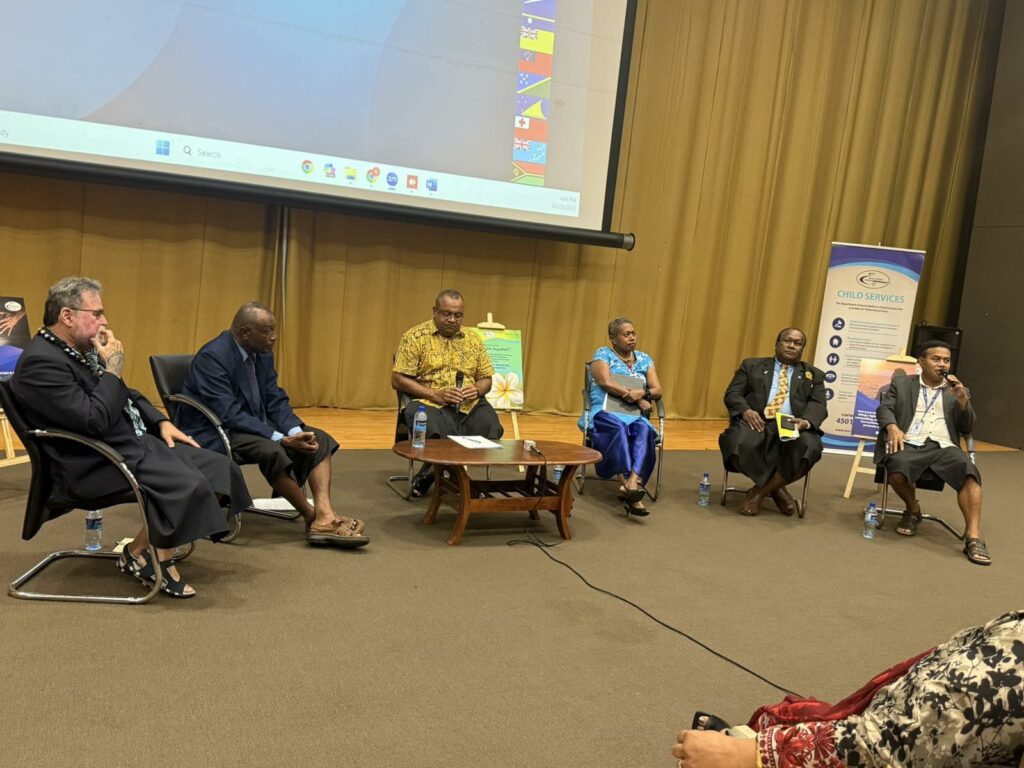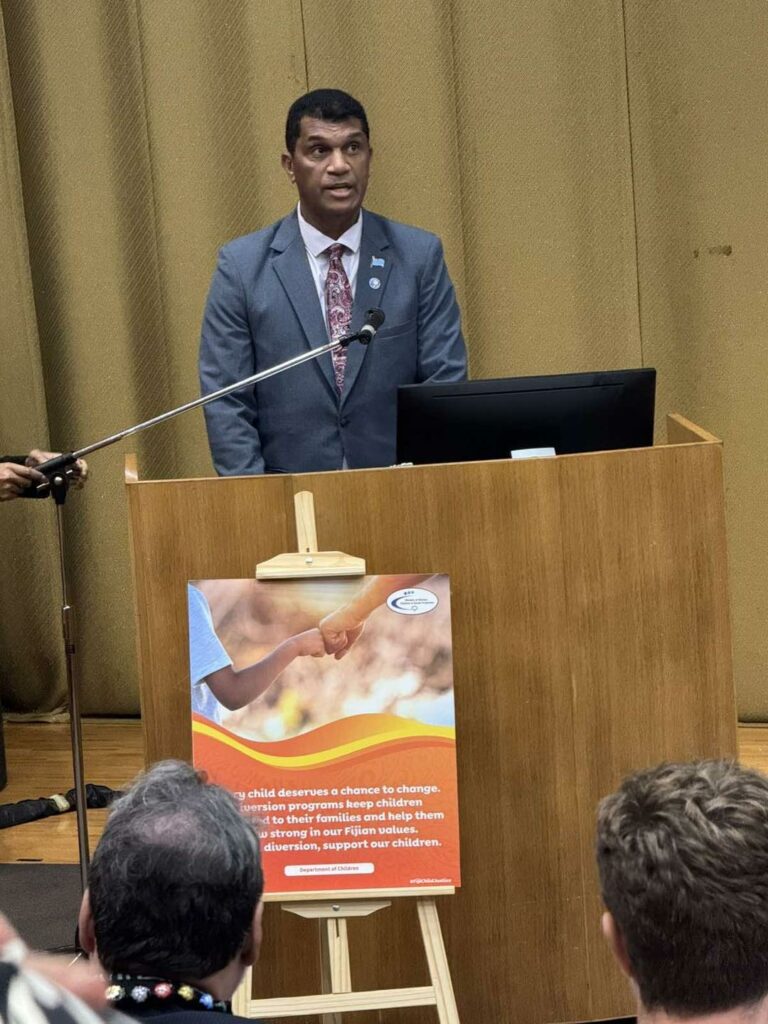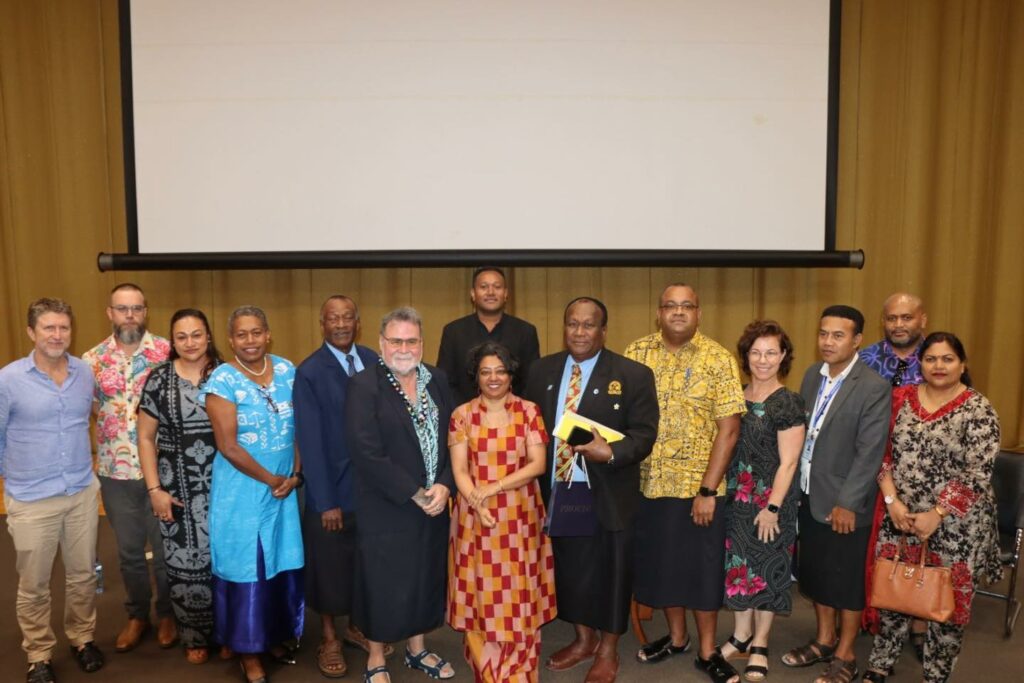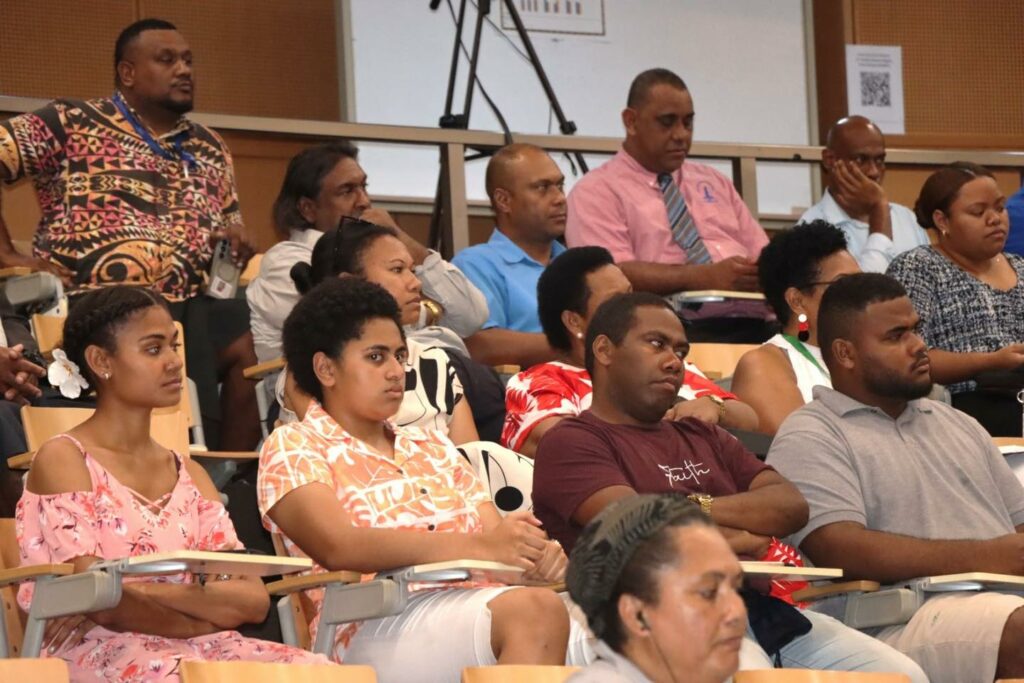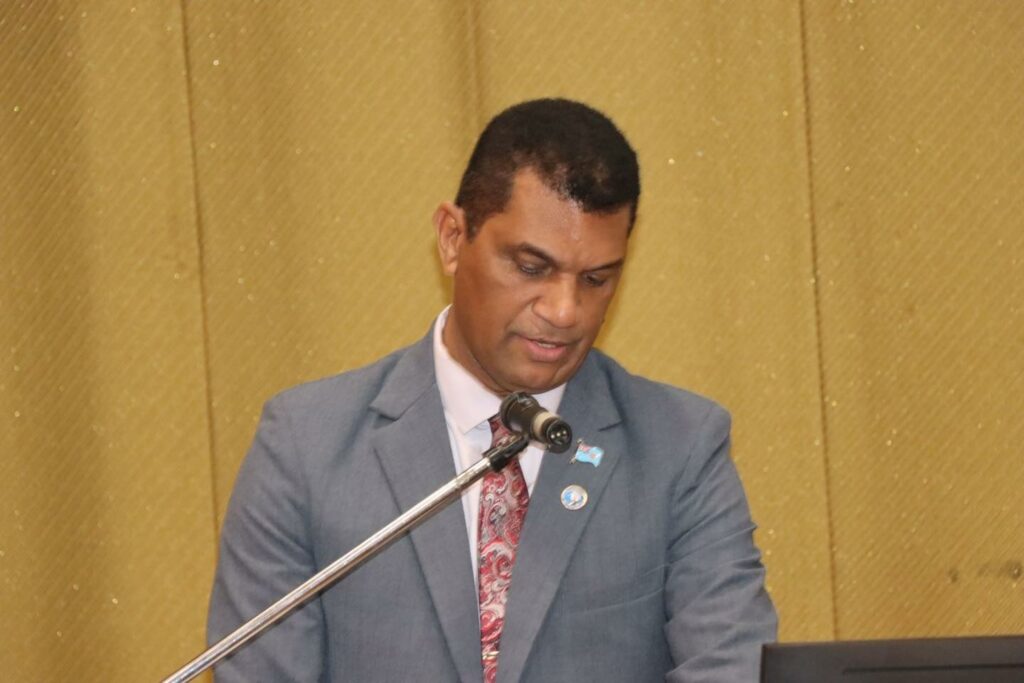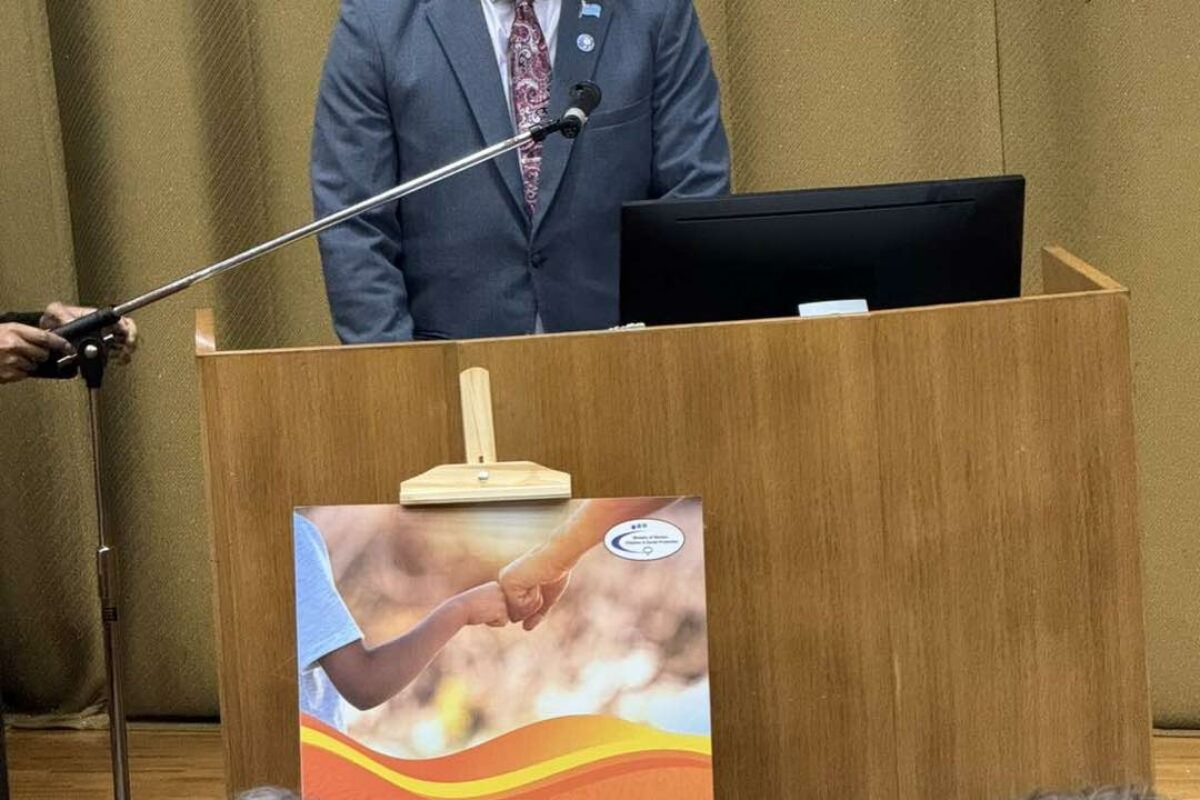Today, educators, development partners, faith-based organisations, and members of the diplomatic corps gathered at the Japan ICT Centre, University of the South Pacific’s Laucala Campus, for a Public Dialogue on Corporal Punishment. The discussion focused on discipline, child protection, and the shared role of homes, schools, and communities in nurturing responsible citizens.
The Minister for Education, Honourable Aseri Radrodro, emphasized that while discipline is essential in a child’s upbringing, it must always be guided by law, compassion, and respect for the rights and dignity of every child.
Citing Proverbs 22:6, the Minister reminded participants,
“Train up a child in the way he should go, and when he is old he will not depart from it.”
He said this principle underpins the Ministry’s ongoing efforts to promote discipline through positive, non-violent means.
Honourable Radrodro reiterated the Ministry’s commitment, “The Ministry of Education maintains a zero-tolerance policy on abuse, neglect, exploitation and corporal punishment. Our teachers must adhere to the Student Code of Conduct which promotes respect, safety and engagement and we encourage parents to take the lead as the first teachers in their homes.”
He also highlighted that Fiji’s 2013 Constitution and the United Nations Convention on the Rights of the Child (CRC) both prohibit all forms of inhumane or degrading treatment or punishment, guiding the Ministry’s approach to discipline and child protection in schools.
Acknowledging challenges faced by teachers in managing indiscipline, Honourable Radrodro stressed that physical punishment cannot be the solution, “We understand the pressures teachers face, but we must find better ways to address behavioural challenges. The Ministry has established Counselling Centres and reintroduced School Padres and Chaplains to support students through behavioural and spiritual guidance.”
The Minister further highlighted the Ministry’s focus on strengthening education access in rural and maritime areas, ensuring that children remain close to their families and communities where traditional values of respect, cooperation, and discipline are best preserved.
He encouraged faith-based organisations, school management committees, and the wider community to continue open dialogue on sustainable, compassionate, and effective approaches to instilling discipline.
Referencing international research, Honourable Radrodro acknowledged that corporal punishment often leads to lower academic performance and higher absenteeism, as fear and anxiety hinder children’s ability to learn and engage. “We must all take responsibility for the upbringing of our children. The home remains the first school, and together we can raise a generation that is responsible, respectful, and ready to contribute meaningfully to Fiji’s future.”
Honourable Radrodro thanked the organisers and participants for their contribution to this important national discussion, reaffirming the Coalition Government’s commitment to child protection and holistic education for all Fijian children.
Picture credit: Ministry of Women, Children and Social Protection
